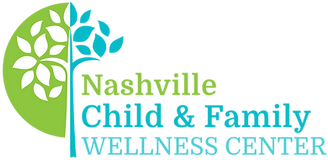GROUP THERAPY
Nashville Child and Family Wellness Center offers evidence-based professionally led outpatient therapy groups that can enhance individual therapy and be an important part of an individual’s treatment plan. Group therapy complements individual work by providing social support, opportunities to learn and practice new skills, in the moment feedback with diverse perspectives, and a unique structure that encourages accountability and motivation. A strength of group therapy lies in the sense of community and shared experience it fosters for participants. Hearing others articulate similar feelings or experiences can be profoundly validating, reducing feelings of isolation and shame. Members of the group can offer insights and coping strategies that might not be accessible through individual therapy alone. This dynamic can help individuals see their challenges from different angles, potentially leading to breakthroughs and new understandings. The social interactions within the group can improve social skills and social confidence as groups provide real-time practice navigating interpersonal relationships. The group setting prioritizes creating a supportive, confidential, and emotionally safe environment where members are more inclined to be vulnerable and try new skills. Groups help individuals hold themselves accountable and practice skills between meetings knowing that they will report back to the group. This can enhance self efficacy and an individual’s overall commitment to the therapeutic process.
GROUPS OFFERED AT NCFWC:
Dialectical Behavior Therapy (DBT) Skills Group
This is an in-person group for high school aged adolescents that uses a multi-family format, requiring a parent or caregiver to participate. There are three eight week modules, and the group meets weekly for 90 minutes. Groups teach helpful skills targeting emotion regulation, distress tolerance, mindfulness,
and interpersonal effectiveness. Incorporating group therapy into a DBT treatment plan can be crucial for its effectiveness, as it enhances the therapeutic process through skill-building and peer support. DBT focuses on changing problematic patterns to live a more meaningful life. Adolescents who struggle with
a variety of concerns including suicidal and self-harm behaviors, eating disorders, anxiety disorders, and mood disorders, can benefit greatly from a group environment where they can practice and refine skillful behaviors in real-time.
Radically Open Dialectical Behavior Therapy (RO-DBT) Skills Class
This is a virtual group, called a skills class, for ages 15 and up. There are three ten-week modules, and the class meets weekly for 90 minutes. RO-DBT targets social signaling and excessive self-control, otherwise known as overcontrol, which can negatively impact interpersonal relationships. Social signaling is any behavior a person exhibits in the presence of another person, regardless of the intention, which could be unknowingly negatively impacting social connectedness. Overcontrol often presents as excessive rigidity, perfectionism, and/or rule-governed behaviors, which contributes to loneliness. Adolescents and adults with chronic depression, treatment-resistant anxiety, anorexia
nervosa, autism, as well as some personality disorders such as obsessive-compulsive personality disorder, can benefit from learning RO strategies to increase flexibility and openness to benefit their mental health and relationships.
Friendship Social Skills Group
This is an in-person group for ages 8 to 11 and uses a curriculum-based format focused on teaching social skills to help participants make and maintain friendships. There are two seven-week modules, and the group meets weekly for 90 minutes. Parents and caregivers do not attend with the child, but they
are given a brief update and a chance to ask questions at the end of each group meeting. Skills are taught through lessons, games, and social snack time. This social skills group can be an effective and low pressure setting for children who struggle with difficulty gaining acceptance by peers, social exclusion, and victimization. The group uses an experiential style that is effective in learning self-control, how to
cope with anger, and interpersonal problem-solving skills.
PEERS Social Skills Group
This is an in-person group for ages 12 to 17 and requires a parent or caregiver to participate in separate, but concurrent sessions. There are two seven-week modules, and the group meets weekly for 90 minutes. This is a curriculum-based group for adolescents with social difficulties associated with autism spectrum disorder or attention-deficit/hyperactivity disorder. Adolescents in the group learn and practice social skills while parents and caregivers are taught how to coach their teens to use the skills
effectively outside of the group. This social skills group can be a vital part of an adolescent’s treatment plan because it provides structured opportunities to develop and practice essential interpersonal skills in a supportive environment. The environment is also experiential, which allows participants to engage in role-playing scenarios, receive constructive feedback, and learn practical strategies for improving communication, assertiveness, and relationship-building.
To find out more specifics about group therapy, head here.
